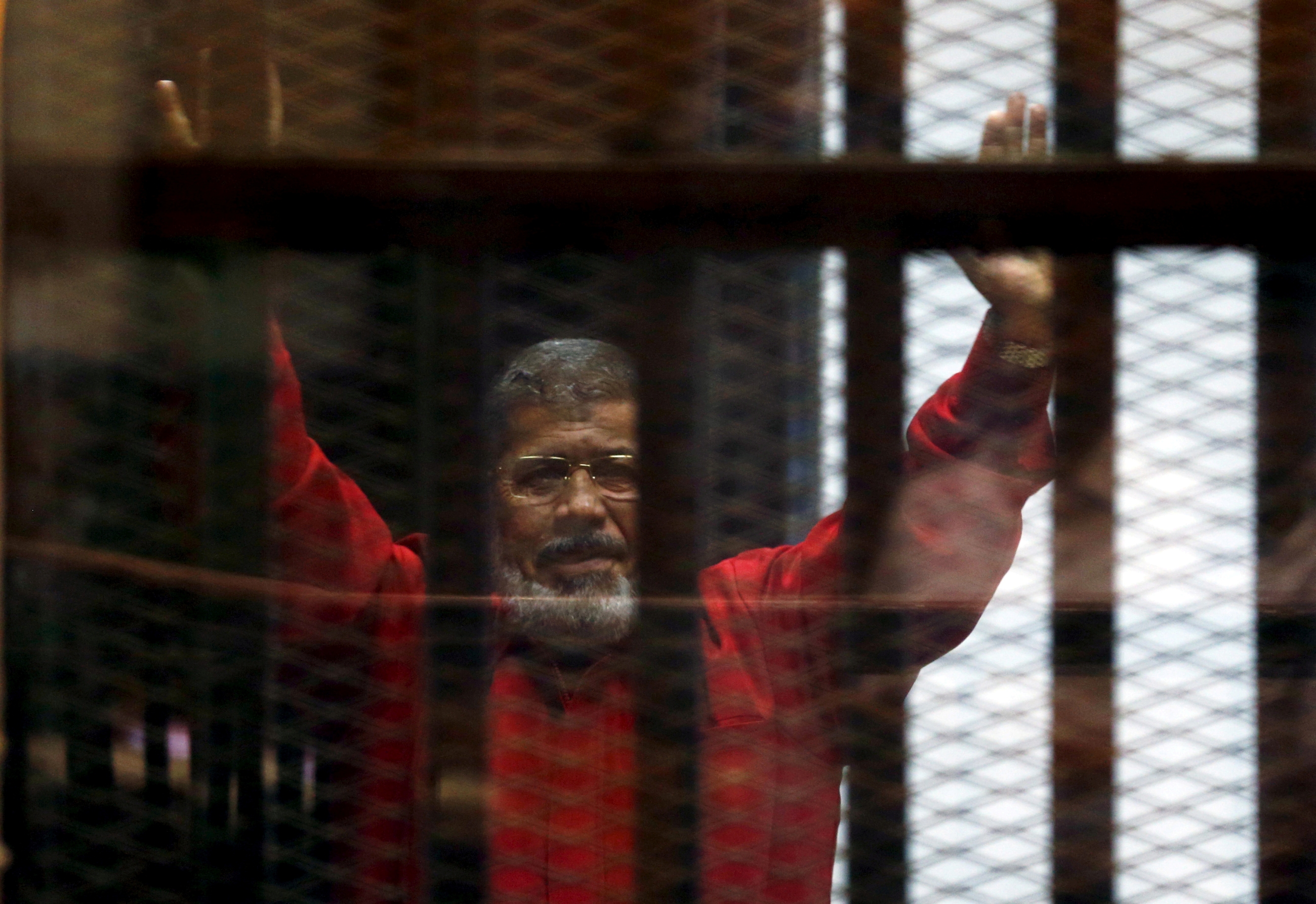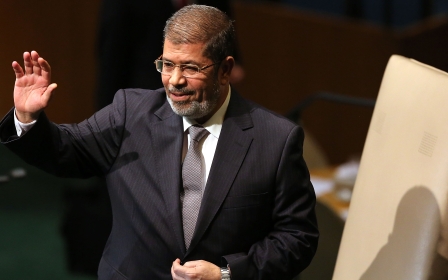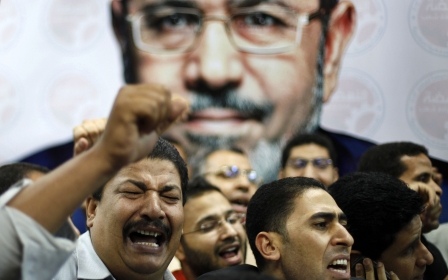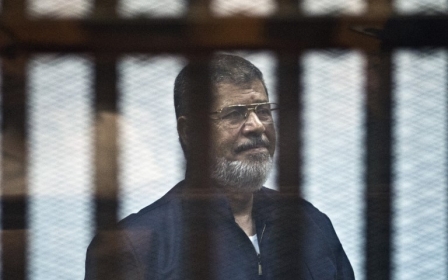Mohamed Morsi: Egypt's first freely elected president who was confined to a courtroom cage

Mohamed Morsi, Egypt’s only elected president, has died after collapsing in a courtroom, the place where his face has been seen most often behind metal bars in the years since he was removed from power in 2013.
Morsi, who was 67, was imprisoned after being toppled in a military coup by Egypt's current President Abdel Fattah el-Sisi, and was in court on Monday facing a retrial on charges including espionage; part of a slew of cases that had initially seen him sentenced to death.
Egypt had only known a handful of military rulers until Hosni Mubarak was ousted in February 2011, following weeks of protests centred around Cairo’s Tahrir Square.
When elections were held a year later, it was Morsi, standing for the Muslim Brotherhood's Freedom and Justice Party, who emerged as the country’s first elected president after a run-off vote against a Mubarak-era minister, Ahmed Shafiq.
Another year later and he was gone, replaced by Sisi, his own defence minister, who threw Morsi in jail and cracked down on the Muslim Brotherhood, putting hundreds of its members in front of courts that sentenced them to death in mass trials.
New MEE newsletter: Jerusalem Dispatch
Sign up to get the latest insights and analysis on Israel-Palestine, alongside Turkey Unpacked and other MEE newsletters
Raised on a farm in the Nile Delta, Morsi studied for his doctorate and then later taught in California before reportedly returning to Egypt in the mid-1980s to teach engineering at Zagazig University, north of Cairo.
Back in Egypt, he rose through the ranks of the Muslim Brotherhood and, as the group was banned from parliament, served as an independent candidate in Egypt’s parliament between 2000 and 2005.
The Muslim Brotherhood had initially chosen Morsi as a back-up candidate for the 2012 elections but he was to the forefront when the group’s deputy chairman Khairat al-Shater was disqualified by the election board.
After decades of repression of the Muslim Brotherhood under Egypt’s military rulers, Morsi promised a moderate agenda that would deliver an “Egyptian renaissance with an Islamic foundation”.
His year in office was turbulent, however, as Egypt’s competing forces struggled over the direction the country should go in.
Opponents accused him of trying to impose an Islamist agenda on the country and mass protests began on the anniversary of his election.
Sisi delivered a warning against Morsi in a speech on 23 June, threatening to intervene on behalf of the opposition, and on the same day General Mohamed Zaki, commander of the Republican Guard tasked with protecting the president, encouraged Morsi to leave the presidential palace for his safety. Zaki later emerged as an ally of Sisi.
After more than a week of spreading protests and violence and talks with Sisi in which Morsi reportedly was prepared to make concessions to the opposition, the army announced it had removed Morsi and taken control on 3 July.
Morsi supporters had been gathered in Cairo’s Rabaa square in the week before he was toppled and remained afterwards, demanding he be returned to his position as president.
The military moved on the square on 13 August 2013, clearing the sit-in with bulldozers and allegedly deploying snipers and ground forces who opened fire with live ammunition. More than 1,000 people were estimated killed.
Morsi faced a number of trials, including on charges of spying for Qatar and of participating in prison breaks and violence against policemen during the 2011 uprising against Mubarak and was sentenced to death and multiple decades-long prison sentences.
However, the death sentence and others were overturned by Egypt's appeals court in 2015, prompting the retrial proceedings.
The conditions in which Morsi and other jailed dissidents were being held, as well as concerns raised by his family and supporters about his state of health, had long attracted the attention of activists and international human rights organisations.
British MPs warned in March 2018 that Morsi was facing an “early death” because of the conditions he was being held in, which included 23 hours a day of solitary confinement, sleeping on a cement floor and being fed only canned food.
He was reportedly suffering from diabetic comas and was losing his eyesight.
Morsi collapsed on Monday inside the infamous cages defendants are held in inside Egypt’s courts and was pronounced dead at 4:50 pm local time.
Egypt’s public prosecutor said a medical report showed no signs of recent injury.
Morsi is survived by five children and it was his family who requested the international panel which investigated the conditions of his detention. They feared he was intentionally being mistreated.
"We will meet in the presence of God," his son Ahmed Mohamed Morsi wrote on Facebook on Monday.
Middle East Eye delivers independent and unrivalled coverage and analysis of the Middle East, North Africa and beyond. To learn more about republishing this content and the associated fees, please fill out this form. More about MEE can be found here.




